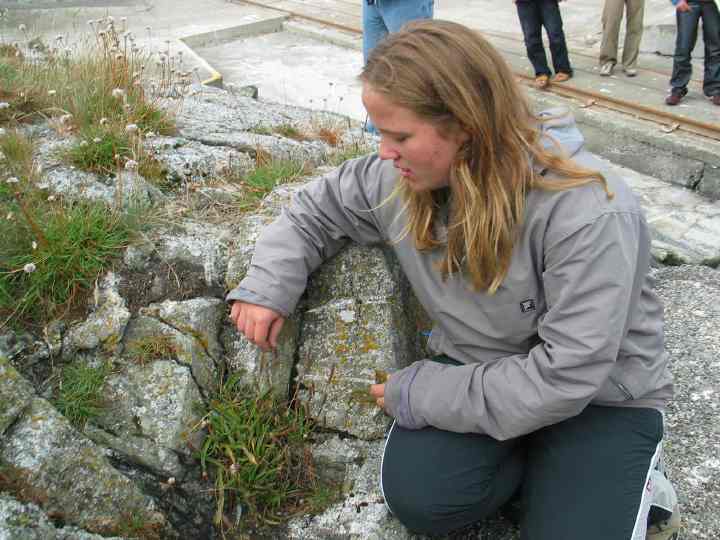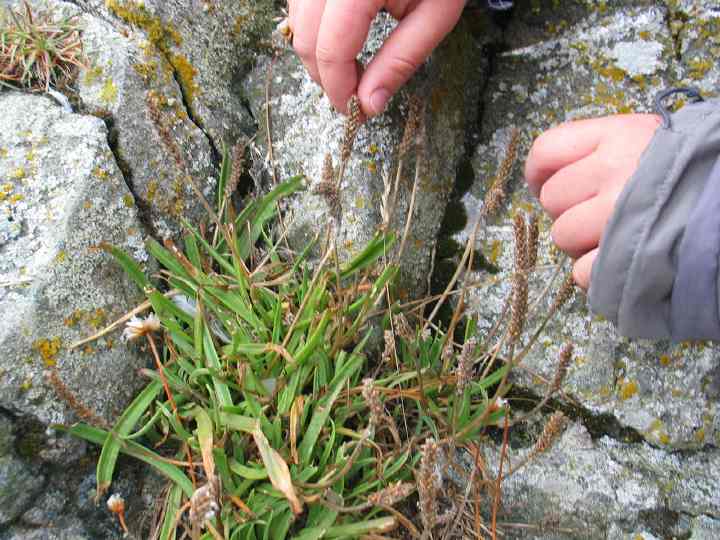| Seaside plantain is a perennial growing to 0.2m. . The flowers are hermaphrodite (have both male and female organs) and are pollinated by Wind. The plant is self-fertile.The plant prefers light (sandy), medium (loamy) and heavy (clay) soils and requires well-drained soil. The plant prefers acid, neutral and basic (alkaline) soils and can grow in saline soil. It cannot grow in the shade. It requires dry or moist soil. The plant can tolerate maritime exposure.It grows on the rocks at Race Rocks where the soil is well drained and dry. It is exposed to the sea spray and so it can tolerate changes in salinity. It is used is a laxative – Plantain seeds contain up to 30% mucilage which swells up in the gut, acting as a bulk laxative and soothing irritated membranes. Sometimes the seed husks are used without the seeds.The young leaves are edible leaves raw or cooked.Reference: http://www.itis.usda.gov/servlet/SingleRpt/SingleRpt?search_topic=TSN&search_value=529711http://www.ibiblio.org/pfaf/cgi-bin/arr_html?Plantago+decipiens&CAN=LATIND |
Domain Eukarya
Kingdom Plantae
Subkingdom Tracheobionta
Superdivision Spermatophyta
Division Magnoliophyta
Class Magnoliopsida
Subclass Asteridae
Order Plantaginales
Family Plantaginaceae
Genus Plantago
Species maritima ssp. juncoides
Common Name: goose tongue
| Other Members of the Angiosperms at Race Rocks |
and Image File |
 The Race Rocks taxonomy is a collaborative venture originally started with the Biology and Environmental Systems students of Lester Pearson College UWC. It now also has contributions added by Faculty, Staff, Volunteers and Observers on the remote control webcams. The Race Rocks taxonomy is a collaborative venture originally started with the Biology and Environmental Systems students of Lester Pearson College UWC. It now also has contributions added by Faculty, Staff, Volunteers and Observers on the remote control webcams.
Jennifer Davies PC Yr 30 |


